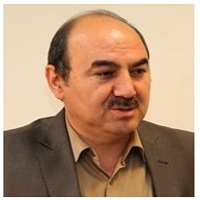Comparing Stress Reactivity, Coping and Life Styles in People with and without Insomnia
Author(s):
Article Type:
Research/Original Article (دارای رتبه معتبر)
Abstract:
Background & objectives
This study aims to compare stress reactivity, coping and life styles in people with and without insomnia.
Methods
Among a population of all patients with insomnia disorder who attended Psychology and Psychiatry clinics in the first semester of 2017 and were diagnosed with insomnia, 30 persons were selected through non-random sampling. On the other hand, other 30 persons were selected as a comparing group from the main population. The two groups were matched as much as possible on age, gender, education, and marital status. Data were collected using Insomnia Saverity Index (ISI), Perceived Stress Reactivity Scale (PSRS), Andler & Parker Coping Style Questionnaire, and Lifestyle Questionnaire (LSQ). Data were analyzed by means of multivariate analysis of variance.
Results
These findings show that, there is a significant difference between stress reactivity and its entire component in both groups. In other words, patients' group shows sever reaction to problem focused coping style, Emotion focused coping style and avoidance oriented coping style. This means that patients had higher stress reactivity than normal people. Predominant coping style in normal group were problem-focused and avoidance. In addition, prevailing coping style in patient group was emotion-focused. There was also a significant difference between patient and normal groups in terms of physical health, sports and fitness, disease prevention, mental health, spiritual health, social health drug avoidance and drug abuse and prevention of accidents.
Conclusion
It can be concluded that the normal group have higher score in components of life style and their life style is better. However, in terms of weight control, nutrition and environmental health, no significant difference was found between two groups. It can also be concluded that patient group have high reaction to stress and mostly use emotion focused coping style and have low score in life style components. Since the pathophysiology of insomnia can be considered as a psychophysiologic hyperarousal status, higher Stress Reactivity with activating the hypothalamus-pituitary-adrenal axis can lead to increase insomnia. Emotion focused coping style by controlling emotional responses and physiological arousal to reduce stress, leads to arousal and insomnia. Lifestyle can also lead to insomnia through affecting the biological mechanisms.Keywords:
Language:
Persian
Published:
Journal of Health, Volume:9 Issue: 5, 2018
Pages:
549 to 564
magiran.com/p1913490
دانلود و مطالعه متن این مقاله با یکی از روشهای زیر امکان پذیر است:
اشتراک شخصی
با عضویت و پرداخت آنلاین حق اشتراک یکساله به مبلغ 1,390,000ريال میتوانید 70 عنوان مطلب دانلود کنید!
اشتراک سازمانی
به کتابخانه دانشگاه یا محل کار خود پیشنهاد کنید تا اشتراک سازمانی این پایگاه را برای دسترسی نامحدود همه کاربران به متن مطالب تهیه نمایند!
توجه!
- حق عضویت دریافتی صرف حمایت از نشریات عضو و نگهداری، تکمیل و توسعه مگیران میشود.
- پرداخت حق اشتراک و دانلود مقالات اجازه بازنشر آن در سایر رسانههای چاپی و دیجیتال را به کاربر نمیدهد.
In order to view content subscription is required
Personal subscription
Subscribe magiran.com for 70 € euros via PayPal and download 70 articles during a year.
Organization subscription
Please contact us to subscribe your university or library for unlimited access!



